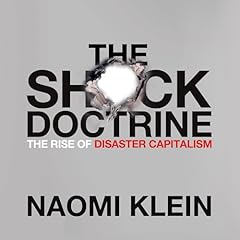
The Gunning of America
Business and the Making of American Gun Culture
No se pudo agregar al carrito
Add to Cart failed.
Error al Agregar a Lista de Deseos.
Error al eliminar de la lista de deseos.
Error al añadir a tu biblioteca
Error al seguir el podcast
Error al dejar de seguir el podcast
 Exclusivo para miembros Prime: ¿Nuevo en Audible? Obtén 2 audiolibros gratis con tu prueba.
Exclusivo para miembros Prime: ¿Nuevo en Audible? Obtén 2 audiolibros gratis con tu prueba.Compra ahora por $24.28
-
Narrado por:
-
Bernadette Dunne
-
De:
-
Pamela Haag
Americans have always loved guns. This special bond was forged during the American Revolution and sanctified by the Second Amendment. It is because of this exceptional relationship that American civilians are more heavily armed than the citizens of any other nation. Or so we're told.
In The Gunning of America, historian Pamela Haag overturns this conventional wisdom. American gun culture, she argues, developed not because the gun was exceptional but precisely because it was not: guns proliferated in America because throughout most of the nation's history they were perceived as an unexceptional commodity, no different from buttons or typewriters.
Focusing on the history of the Winchester Repeating Arms Company, one of the most iconic arms manufacturers in America, Haag challenges many basic assumptions of how and when America became a gun culture. Under the leadership of Oliver Winchester and his heirs, the company used aggressive, sometimes ingenious sales and marketing techniques to create new markets for their product. Guns have never "sold themselves"; rather, through advertising and innovative distribution campaigns, the gun industry did.
Through the meticulous examination of gun-industry archives, Haag challenges the myth of a primal bond between Americans and their firearms. Over the course of its 150-year history, the Winchester Repeating Arms Company sold over eight million guns. But Oliver Winchester - a shirtmaker in his previous career - had no apparent qualms about a life spent arming America. His daughter-in-law, Sarah Winchester, was a different story. Legend holds that Sarah was haunted by what she considered a vast blood fortune and became convinced that the ghosts of rifle victims were haunting her.
In this provocative and deeply researched work of narrative history, Haag fundamentally revises the history of arms in America and, in so doing, explodes the clichés that have created and sustained our lethal gun culture.
©2016 Pamela Haag (P)2016 Blackstone Audio, Inc.Los oyentes también disfrutaron:




















Great Read!
Se ha producido un error. Vuelve a intentarlo dentro de unos minutos.
The book at points becomes a women's studies course on Sara Winchester and her spiritualism (probably would be "white guilt" also).To much of the book is about Sara Winchester.
This is what you get from a Yale history professor.
Not as complete as one would hope.
Se ha producido un error. Vuelve a intentarlo dentro de unos minutos.
Interesting but all over the place
Se ha producido un error. Vuelve a intentarlo dentro de unos minutos.
Chapter 23 sums up our current gun issues
Se ha producido un error. Vuelve a intentarlo dentro de unos minutos.
Overall it was an interesting read for the history, but it does not live up to it’s title in any way. The immense amount of basic errors, which could be remedied by a five minute google search, call the rest of the text into question. If you are looking for a book that takes a critical look at this complex topic, you won’t find it in this read.
Very subjective, lots of speculation, many inaccuracies
Se ha producido un error. Vuelve a intentarlo dentro de unos minutos.


